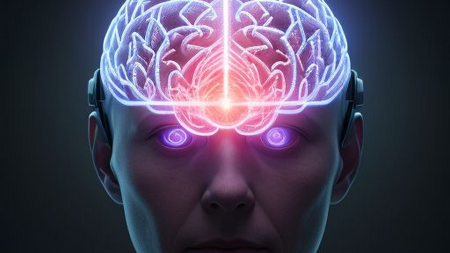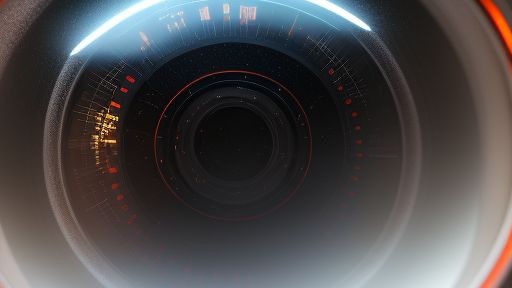Theory #1: Connecting Realities: Human Brain Cells, Artificial Intelligence, and Quantum Science

In the vast tapestry of existence, three entities stand out for their complexity and potential: human brain cells, artificial intelligence (AI), and the burgeoning principles of quantum mechanics. Each of these realms is profound on its own, yet the interplay between them offers a frontier ripe for exploration. This chapter seeks to unravel the intricate connections that bind these domains, spotlighting how our understanding of brain cells can inform AI development and how quantum mechanics may redefine computation and intellect.Understanding Brain Cells
The human brain, an organ of immeasurable complexity, comprises approximately 86 billion neurons. Each neuron is a specialized type of brain cell that communicates via synapses, transmitting electrical and chemical signals throughout the intricate neural networks. While the basic building blocks of brain cells—dendrites, axons, and synapses—form a well-defined structure, the behaviors they exhibit are anything but predictable. Notably, the unique plasticity of neurons allows the brain to learn, adapt, and evolve.
Neural plasticity is the brain's ability to rearrange connections between neurons in response to experiences. This adaptability is crucial for learning and memory; as we engage with the world, certain neural pathways are strengthened, while others may fade away. This malleability establishes a fundamental difference between human cognition and traditional computational systems, which rely on fixed algorithms and linear processing.
The Rise of AI
Artificial intelligence, in its myriad forms, attempts to emulate aspects of human cognition. Traditional AI systems draw upon vast datasets and algorithms to predict outcomes and generate responses. While they have demonstrated remarkable success in specific domains—such as image recognition or natural language processing—they operate fundamentally differently than human brain cells. Conventional AI lacks the intricacies of emotional responses, conscious thought, and the ability to generalize knowledge across disparate contexts.
In recent years, machine learning, particularly deep learning, has transformed AI. Systems based on artificial neural networks attempt to mimic the structure and function of the human brain. However, despite the resemblance in nomenclature, artificial neurons lack key attributes of biological neurons, such as spontaneous activity and plasticity. AI systems require vast amounts of labeled data and struggle with evolving information, a stark contrast to human cognition’s fluidity and adaptability.
Nonetheless, understanding brain cells could significantly enhance AI's capabilities. Neuromorphic engineering, a burgeoning field, aims to design hardware inspired by the brain's architecture. By mimicking the synaptic activity and connectivity patterns found in biological systems, researchers hope to create more adaptable and efficient AI systems.
The Quantum Connection
Quantum mechanics, the enigmatic framework governing the behavior of the subatomic world, has rapidly become a focal point in the field of computation. Quantum computers, which manipulate qubits instead of classical bits, offer unprecedented processing capabilities by exploiting phenomena such as superposition and entanglement. These principles allow quantum computers to perform complex calculations significantly faster than traditional computers.
The interplay between AI and quantum computing is fascinating. Quantum algorithms have the potential to revolutionize machine learning, enhancing the ability to analyze vast datasets and uncover intricate patterns that would be impossible for classical systems. This innovation could lead to breakthroughs in AI's ability to replicate human-like reasoning and decision-making processes.
However, this potential does not come without challenges. Quantum systems are inherently fragile, and replicating the robustness of human cognition within a quantum framework remains a formidable hurdle. The ultimate integration of AI and quantum computing may yield systems that could not only learn and adapt like humans but also transcend the limitations of our biological systems.
Bridging the Gap
The convergence of insights from neuroscience, AI, and quantum theory encourages a reimagining of intelligence itself. The study of brain cells offers vital lessons for enhancing AI systems, while advancements in quantum mechanics promise new paradigms of computation that could amplify cognitive capacities. Emerging interdisciplinary fields, such as quantum neuroscience, seek to explore the intersections of these domains—offering tantalizing possibilities for understanding consciousness, cognition, and the very nature of reality itself.
To facilitate this synergy, researchers are investigating how quantum effects might play a role in biological systems. Quantum coherence and entanglement could influence neuronal function, potentially explaining phenomena like consciousness and complex decision-making. If established, this theory not only reinforces the connection between quantum mechanics and biological processes but also catalyzes the development of quantum-inspired computational models.
As we continue to explore the interplay of human brain cells, artificial intelligence, and quantum mechanics, we open doors to profound possibilities. The journey promises to deepen our understanding of cognition and intelligence, paving the way for innovations that transcend traditional boundaries. By drawing lessons from each domain, we can aspire to create systems that mirror human-like adaptive capabilities while harnessing the extraordinary power of quantum computing.
Through this convergence, humanity stands at the precipice of a future where the distinctions between biological and artificial intelligence blur, sparking a new era of discovery that could redefine our understanding of consciousness, creativity, and the very fabric of life. The unfolding narrative of brain cells, AI, and quantum mechanics not only challenges our existing paradigms but inspires a bold vision for what may lie ahead.
Join me on my exploration and become part of my quantum journey. This is more than just about a new computer or technical evolution; it represents a fundamental transformation—a revolution of technology, science, and thought. Our values, human perception, and everything we know are about to shift. We stand on the threshold of a new era. I am dedicated to transforming myself and you for the quantum age.
This is the way.
References:
(25/03/2025) World's first "Synthetic Biological Intelligence" runs on living human cells:
https://newatlas.com/brain/cortical-bioengineered-intelligence/

